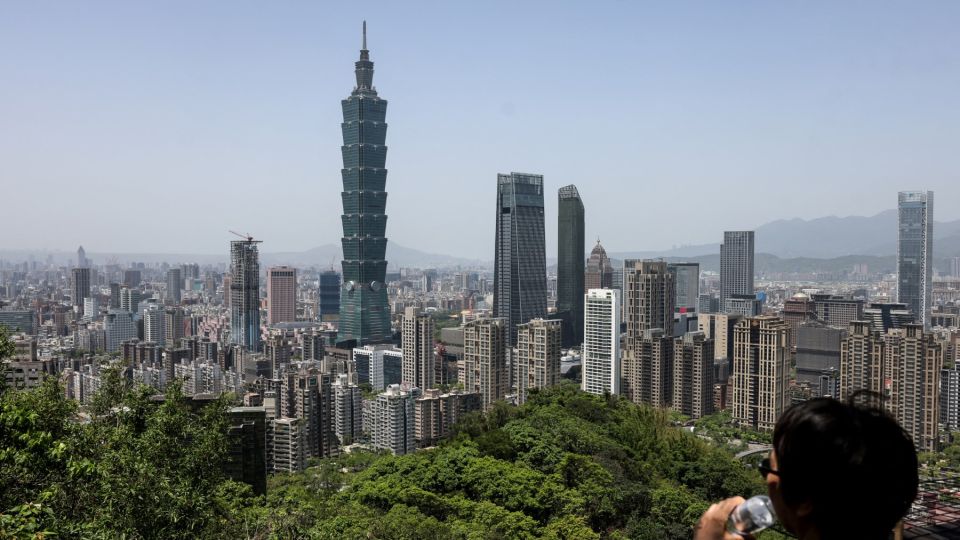November 13, 2025
TAIPEI – The United States’ ties with Taiwan and China do not always have to be “a triangular relationship”, the island’s top diplomat Lin Chia-lung said.
He also pointed out that Taiwan’s relations with the US should be regarded separately from Washington’s ties with Beijing, and these links can be developed simultaneously.
There is concern in some quarters that US President Donald Trump, who is known for his transactional foreign policy, might be pressed to “sell out” the self-ruled island in exchange for a more favourable trade deal with Beijing.
“Of course, we need to pay close attention and care about (this issue), but we should not be overly worried,” said Mr Lin at a media briefing in Taipei on Nov 12.
“Trump is said to be a good dealmaker and he hopes to make a good deal. But I believe sacrificing Taiwan’s interests will not bring long-term benefits to the US. That is something that we can be quite confident about.”
Observers, including several White House officials, are reportedly worried that Mr Trump could walk away from longstanding US policy on Taiwan and openly express opposition to the island’s independence.
Taiwan is not just a contentious issue but also a potential flashpoint between Washington and Beijing, which claims the self-ruled island as its own territory and has, in recent years, ratcheted up military, diplomatic and economic pressure on it.
Meanwhile, Washington is obliged under the Taiwan Relations Act, passed by the US Congress in 1979, to provide the island with the arms it needs to defend itself.
But while Taipei heaved a cautious sigh of relief as Mr Trump and his Chinese counterpart Xi Jinping steered clear of talking about Taiwan during their Oct 30 summit in South Korea, it is believed that the sensitive topic will likely be brought up during their next meeting in the new year.
Mr Trump has previously said that he planned to travel to Mr Xi’s home turf in April 2026 before he receives his Chinese counterpart in the US.
Foreign Minister Lin’s wide-ranging 1½-hour session with international media also comes after a flurry of recent visits by senior Taiwanese officials to Europe as the island seeks to strengthen friendships beyond Washington.
On Nov 7, Taiwan’s Vice-President Hsiao Bi-khim made history in Brussels when she addressed the Inter-Parliamentary Alliance on China at the European Parliament.
She became the first senior member of the Taiwanese government to speak in a European legislature.
Ms Hsiao was accompanied by Mr Lin on the trip. It was his third visit to Europe in two months and included stops in countries such as the Czech Republic, the Netherlands, Italy and Austria.
Days later, on Nov 10, former Taiwanese president Tsai Ing-wen delivered a speech in Berlin , where she said that “regional stability and global security are a joint responsibility that requires joint efforts”.
Like most countries, European Union (EU) member states have no formal diplomatic ties with Taiwan and officially follow the “One China” policy.
However, Taiwan and the bloc share common democratic values and close trade and high-tech ties.
This also comes as economic relations between China and the EU have deteriorated as Beijing has weaponised its dominance of the rare earth supply chain.
“There has been a qualitative change in the economic relationship between Europe and China, going from ‘complementary’ 10 years ago to ‘competitive’ today,” said Associate Professor Chen Shih-min, a political science analyst at National Taiwan University.
“Therefore, the EU is less concerned that strengthening unofficial relationships with Taiwan would make China unhappy.”
Since Russia’s invasion of Ukraine , Taipei has also drawn parallels between the cyber attacks and undersea cable cuts it faces from China to the growing hybrid threats now confronting Europe.
“These countries want to know why Taiwan can continue to survive despite facing intimidation and coercion from the Communist Party of China,” said Mr Lin.
“Taiwan’s experience is invaluable, including with regard to grey-zone tactics and disinformation.”
Prof Chen said he believes Taiwan’s relations with Europe will only become stronger in the days to come.
“The first step is always the hardest, but now that we’ve made that first step, there will be a second and a third,” he told ST.
“As long as our Foreign Affairs Ministry takes advantage of this, we will definitely see the bilateral relations between Taiwan and (European) countries continue to improve.”


